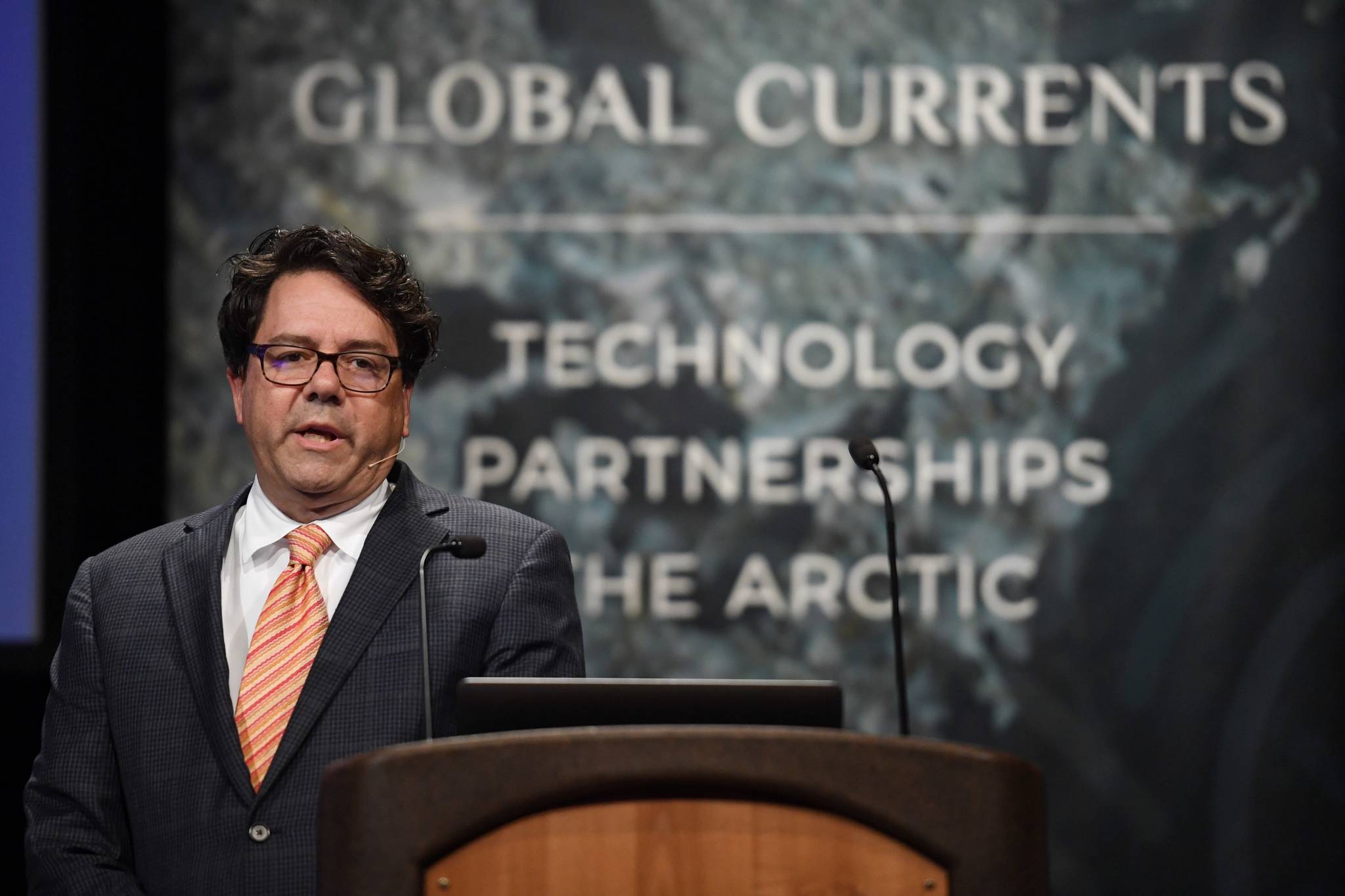Vincent Pieribone is unsure how exactly it happened, but the Earth’s oceans seem to be undervalued.
The vice president for an ocean-exploration nonprofit, professor of cellular & molecular physiology and neuroscience at the Yale School of Medicine, and fellow at the John B. Pierce Laboratory said it’s his and OceanX’s goal to change that.
“The oceans play an essential role in human life and are missed in sort of a weird way,” Pieribone said.
Pieribone was the keynote speaker Thursday at the International Forum of Sovereign Wealth Funds’ annual meeting in Centennial Hall. He explained what it is the organization started by billionaire Ray Dalio does and why its mission matters.
[Live: Coverage of the IFSWF annual meeting]
In a day of talks that were often packed with substance, figures and big ideas, Pieribone’s multimedia presentation and jovial speaking style captured attention, even if its contents were often jarring.
Pieribone said there is “lots” going wrong with the ocean, including warming, acidification, overfishing, algae blooms, pollution, plastics and ships striking wildlife.
“Part of why there’s so much going wrong in the ocean is the tragedy of the commons,” he said.
Pieribone said that’s because much of the ocean is not managed by a particular country and many of the small island nations that do manage parts of the ocean are ill-equipped to do so.
He said it’s OceanX’s goal to raise awareness of those concerns via research and media productions showcasing the wealth of animals and resources contained within the oceans’ waters.
OceanX efforts have included “Blue Planet II,” productions with James Cameron, director of “Avatar” among other hits, and a “state-of-the-art” research vessel.
Pieribone said that’s partly intended to offset what he characterized as the ocean’s public relations loss to space. He joked it is an uphill battle since space gets to be home to Ewoks of “Star Wars” fame.
[Alaska and Wyoming governors talk about opportunities, challenges and climate change]
He also spoke briefly about the future of the Arctic.
Among scientists the concept of a warming Arctic is just about universally accepted, Pieribone said. He said some projections indicate that by 2036, there could be so little Arctic ice that the region could be navigable year-round.
“It’s not a good thing, but it’s going to happen,” Pieribone said.
That scenario will present challenges, he said.
“As the Arctic opens up, it’s going to be a nightmare of who owns what,” Pieribone said.
• Contact reporter Ben Hohenstatt at (907)523-2243 or bhohenstatt@juneauempire.com. Follow him on Twitter at @BenHohenstatt.

